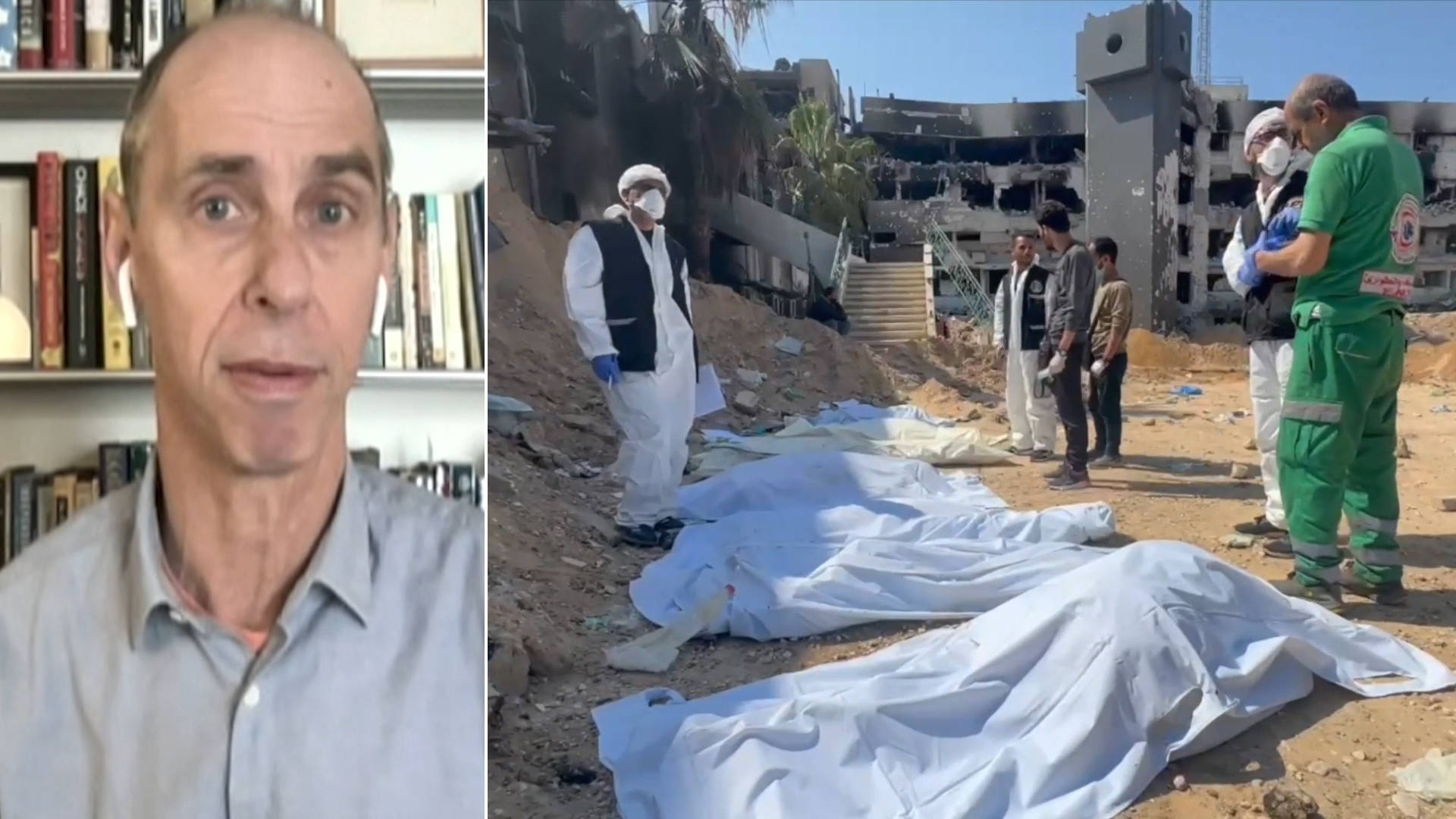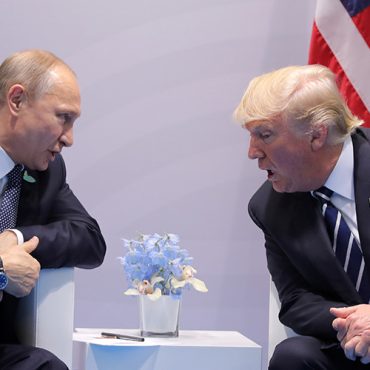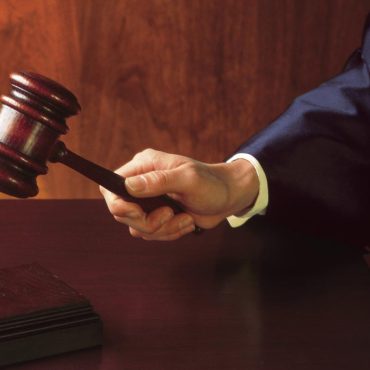This is a rush transcript. Copy may not be in its final form.
AMY GOODMAN: This is Democracy Now!, democracynow.org, The War and Peace Report. I’m Amy Goodman, with Juan González.
We end today’s show with journalist Peter Maass, who has written an opinion piece for The Washington Post headlined “I’m Jewish, and I’ve covered wars. I know war crimes when I see them,” unquote. Until recently, Peter was a senior editor at The Intercept. He’s the author of Love Thy Neighbor: A Story of War. He covered the Bosnia war for The Washington Post and the U.S. invasions of Afghanistan and Iraq for The New York Times Magazine.
Peter, welcome to Democracy Now! You begin your piece in The Washington Post by saying, “How does it feel to be a war-crimes reporter whose family bankrolled a nation that’s committing war crimes? I can tell you.” Lay it out for us.
PETER MAASS: Well, my great-great-grandfather was Jacob Schiff, who was a financier at the end of the 19th century and early 20th century, one of the wealthiest people in the country probably, who donated a lot of money and organized the movement of Jews, persecuted Jews, from Europe, largely from Russia but also from other countries and Russia, to any safe haven that would have them, including America, but also, significantly, British-controlled Palestine. And then, his son-in-law, my great-grandfather, Felix Warburg, who married Jacob Schiff’s daughter, continued that process of supporting and helping to organize the migration of persecuted Jews from Europe to British-controlled Palestine. This is before World War II, the Holocaust and the establishment of Israel.
AMY GOODMAN: Yet you say they were anti-Zionists. Can you explain?
PETER MAASS: Well, they were non-Zionists, which was actually different, significantly different, from being anti-Zionists. There was a movement amongst American Jews and Jews elsewhere, in Europe, that was called non-Zionism. And for them, the non-Zionists, the point was Jews should be able to go to British-controlled Palestine. They need to go to British-controlled Palestine because they need refuge from the persecution they’re suffering in Europe.
But they were against the establishment of a Jewish state, for two reasons. One is that they were concerned that if there were a Jewish state, then all of the antisemites, in America and elsewhere, would look at Jews who are not living in this Jewish state and say, “Ah, you know, your loyalty is actually to this other country.” And that would kind of increase suspicions of Jews and make them seem lesser citizens in the countries that they were living in. And then, the second concern, which was one that a lot of people had but that non-Zionists also had and pronounced, was they were concerned about violence between Arabs and Jews. They just kind of said, “Look, you know, if one side, the Jews or the Arabs, for that matter, try to exert total control over a state that’s going to be established there” — because, remember, at this time, Palestine was under the control of the British Mandate — “then it’s going to be really violent.” My great-grandfather referred to it as a shooting gallery.
JUAN GONZÁLEZ: And, Peter, you also covered the wars in Croatia and in Bosnia. And could you talk about how your journalism there helps inform your perspective of what’s going on? Because many, of course, of our listeners and viewers are not familiar with those wars and the war crimes committed there.
PETER MAASS: In the early 1990s, Yugoslavia, which was a kind of conglomeration of different republics, five or six — I forget the precise number, actually — began to fall apart. And instead of falling apart peacefully, it fell apart violently. And there was first a war when Slovenia, one of the republics, seceded. And then there was an even larger war when Croatia, another one of its constituent republics, seceded. And then, when Bosnia did the same — this was in 1992 — this was, unfortunately, the largest war of all.
There were a significant number of Serbs who lived in Bosnia. And Slobodan Milošević, who was the leader in Belgrade of kind of all Serbs in the country, organized the kind of provisioning of military materiel and soldiers, guerrilla fighters, paramilitaries, to go in and basically fight against the Muslims and Croats in Bosnia who wanted to have an independent state and who voted in a referendum for an independent state. And the war there, which I went to cover, it was not your ordinary war of army against army. It was a war of paramilitaries committing atrocities against defenseless civilians, largely Muslims, some Croats, and it also consisted of sieges against the few cities that were able to resist the onslaught. Sarajevo was one of these cities. Srebrenica was another one of these cities.
And so, I was there covering this war, seeing terrible things happen that are not supposed to happen in war. I mean, wars are violent. Civilians get killed in wars. But it’s not always illegal. In this case, there were civilians right under my window in Sarajevo getting shot by snipers, and I wrote about that. There were civilians whose houses were getting bombed. There were civilians who were standing in bread lines who were getting bombed and killed. There were aid shipments of medicine and food that were being prohibited from entry into these so-called safe areas, because they were supposed to have been protected by the United Nations but were not. And so, I was there reporting on this.
And in 1993, a year after this war began, there was an international criminal tribunal that was set up to investigate war crimes and possible genocide that was occurring at the time in Bosnia. And that tribunal subsequently did hold a number of trials, including of senior Bosnian and Serb leaders — the military leader Ratko Mladić, the political leader Radovan Karadžić and the Serbian leader Slobodan Milošević — in which the charges included genocide. And both Karadžić and Mladić are now in jail for the rest of their lives on charges that include genocide. So I was reporting on this genocide.
AMY GOODMAN: As you compare what you saw in Bosnia to what you saw in Gaza, you write in that piece, “When I reported from besieged Sarajevo, I stayed in a hotel that was smack on the front line, with Serbian snipers routinely firing at civilians walking under my window. … On a spring day in 1993, I heard the familiar crack and whistle of a sniper’s bullet, followed by an awful scream. I went to my window and saw a wounded civilian trying to crawl to safety. Writing in The Post more than three decades ago, I described the man’s desperate shouts as ‘a mad howl of a person pushed over the edge. It came from the lungs, from the heart, from the mind,’” you write in The Washington Post. You also write about disturbing video footage from Gaza that shows Hala Khreis walking on a so-called safe route in January with her grandson, 5-year-old Tayem Abdel, who was holding a white flag when she was shot and killed by an Israeli sniper. Talk about the comparisons, or what you call the rhymes.
PETER MAASS: Yeah. I mean, God, I remember those stories so well. This is the most — there are so many disturbing things going on in Gaza now and in the West Bank. But as the Israeli attack began, after the Hamas attack on October 7th against Israel, you know, we began seeing these videos and reports emerging from these very brave journalists in Gaza of what was happening — and, for example, that video of this grandmother being shot, obviously quite intentionally. And everything that I was seeing — flour line massacres in Gaza, for example, airdrops of humanitarian aid that killed some of the people they were intended to help because they landed on top of these people — also happened in Bosnia. I began seeing just the same kinds of incidents, that were the constituent elements in Bosnia of genocide, also happening in Gaza, but — kind of most disturbing in a way — at a scale that was larger than Bosnia. I mean, for example, you know, in Bosnia, over the course of its four-year war, there were something like 7,000 or 8,000 children killed, which is terrible. In Gaza, over the course of just six months, there have been more than 13,000 children killed. So, you know, I just could not help but see not only the parallels, but also how what seems to be unfolding in Gaza is even worse than what I saw in Bosnia.
JUAN GONZÁLEZ: And we have less than a minute left, but I’m wondering your perspective on how the U.S. media has been covering the war in Gaza.
PETER MAASS: It’s been a real mixed bag. And it was a real mixed bag in Bosnia. And we’re all kind of captives of our experiences. And so, I covered the war in Bosnia, and I also covered other wars. So, you know, I may be talking too much about Bosnia, but I think it is relevant. In Bosnia, there was exceptionally good coverage, I think — and I’m biased on this, but I think — from the journalists who were on the ground, largely foreign journalists, but also a lot of Bosnian journalists — really good coverage of actually what was going on. But then, in the foreign capitals, in Washington, D.C., but also London and France — France and Britain were very important elements of the international community at the time — the reporting was terrible, because it reflected the kind of briefings that the journalists were getting from all their government sources and all the think tank people, and they were just saying, “Oh, it’s a mess there. These people —
AMY GOODMAN: We have 15 seconds, Peter.
PETER MAASS: — “plan to kill each other.” So, we have the same problem now, where there’s a lot of bad coverage coming out of the capitals, such as Washington, although from the ground itself, reporting is quite excellent.
AMY GOODMAN: We want to thank you so much for being with us, Peter Maass, journalist, former senior editor for The Intercept, author of Love Thy Neighbor: A Story of War. We’ll link to your latest piece in The Washington Post. He also covered U.S. invasions of Afghanistan and Iraq for The New York Times. I’m Amy Goodman, with Juan González. Thanks so much for joining us.











Post comments (0)